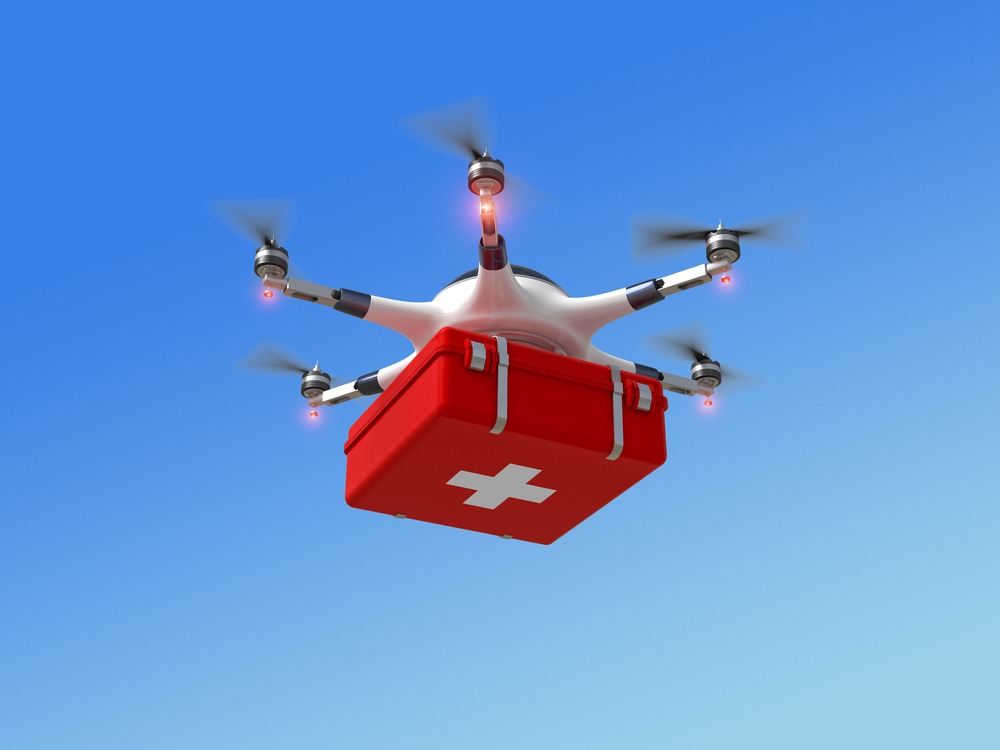
A Johns Hopkins study has set a new record for medical drone transport, transporting human blood samples across 161 miles of desert over a three-hour flight–without temperature control failure.
Researchers published their findings in the American Journal of Clinical Pathology earlier this month. Their conclusion–and goal to prove–was that unmanned aircraft are an effective method of medical transport, particularly from remote areas to laboratories for analysis of samples.
“Drones can operate where there are no roads, and overcome conditions that disable wheeled vehicles, traffic and other logistical inefficiencies that are the enemy of improved, timely patient diagnoses and care,” Timothy Amukele, an assistant professor of pathology at Johns Hopkins, said. “Drones are likely to be the 21st century’s best medical sample delivery system.”
Amukele’s team conducted a test with two parts: car and drone. Both contained cooling systems. Of interest beyond the distance record set during the test was the fact that the average temperature of the flow of samples was five degrees lower than those of those samples not flown.
Following the tests, all samples were transported by car across 62 miles to the Mayo Clinic in Scottsdale, Arizona. Those samples were then subjected to 17 of the 19 most common chemistry and hematology tests, which revealed that both car and flight delivered samples showed similar results for red blood cell, white blood cell, platelet and sodium counts. The only real difference between the two delivery methods was revealed in glucose and potassium levels–wherein the car-driven samples suffered statistically significant chemical degradation from slightly warmer temperatures.
Further and larger studies are planned both in the United States and overseas to build on the results.